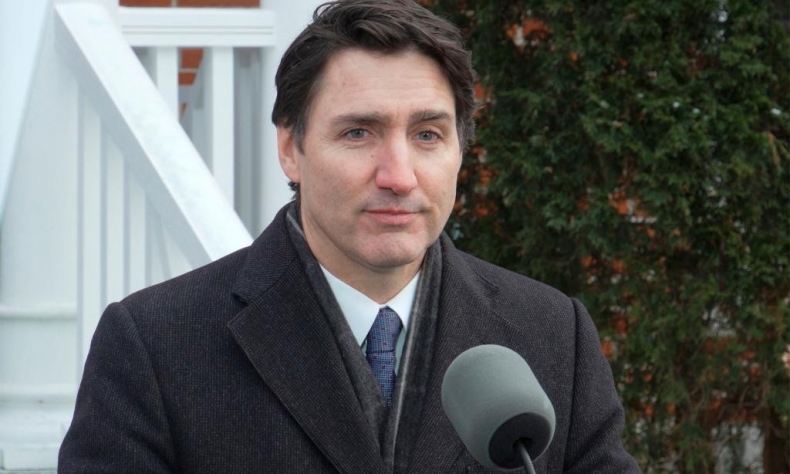Curtain Call: Trudeau Bows Out

Trudeau’s foreign policy missteps have cost him both on the international stage and at home. The future of Canadian politics is now open to redefinition.
On January 6, Canadian Prime Minister Justin Trudeau announced his resignation as leader of the Liberal Party, bringing an end to nearly a decade of his political leadership. Though long anticipated by Canadian media, his bowing out reflected the mounting discontent both within his party and across the country.
Economic challenges severely eroded Trudeau’s popularity. While his government initially responded with financial aid packages and targeted support, issues like inflation, rapid housing price rise and stagnant wages have taken a toll on Canadians in recent years.
Trudeau’s resignation marked the culmination of years of internal strife within the Liberal Party, which has seen substantial fragmentation. One major blow to his leadership came on December 16, 2024, when Deputy Prime Minister Chrystia Freeland resigned, citing disagreements over major issues like economic recovery and the looming trade war with the United States. Her departure was considered by many political experts a serious setback to Trudeau’s credibility, as she was one of his most trusted allies—and even a potential successor.
Trudeau’s one-sided stance in international affairs underscored miscalculations in his leadership. Over his decade in power, Canada’s domestic and foreign policies became heavily intertwined with the U.S. However, especially after Donald Trump’s re-election late last year, Canada’s role shifted in American eyes—from a close ally to a more vulnerable target, susceptible to manipulation.
In November 2024, following Trump’s threat to impose tariffs on Canadian imports once he resumes office, Trudeau made a special trip to Mar-a-Lago in Florida to meet with the president-elect. But instead of engaging in productive dialogue, he was mocked by Trump, who referred to him as the “governor of Canada,” suggesting that Canada should become the 51st U.S. state. Trump repeated this insult on social media on December 10, 2024. These actions were clear attempts by Trump to belittle both Trudeau and Canada, using tariffs and mockery serving as tools to apply pressure.
Trudeau’s response as head of government revealed a lack of political acumen. Rather than standing firm in the face of these insults, he showcased their dinner together on social media as evidence of a positive relationship. Even worse, upon returning to Canada, he announced tariffs on certain Chinese goods, seemingly to demonstrate his “loyalty” to Trump. The move appeared to be an attempt to signal alignment with the U.S. on its stance toward China, perhaps hoping it might serve as leverage in future negotiations.
What’s particularly concerning is that China, once a chief market for Canada to mitigate U.S. trade pressures, has now been sacrificed entirely in an effort to appease the U.S. Trudeau’s approach has been one of concession, abandoning any notion of neutrality and effectively cutting off Canada’s fallback option in dealing with these two global superpowers. His lack of diplomatic foresight has left Canada unable to fully capitalize on opportunities from either side.
Trudeau’s submissive stance toward Washington, in an attempt to appease Trump, failed to earn the respect or recognition he sought. Upon his resignation as party leader, the backlash was instant: The ridicule from Trump and other critics only grew louder, making it clear that Trudeau’s foreign policy missteps have cost him both on the international stage and at home.
Trudeau’s resignation signals a turning point for both his personal political career and Canadian politics as a whole. With a federal election looming in 2025, Canada is on the cusp of entering a new political era—one that may see the Conservative Party return to power, or possibly a revitalization of the Liberal Party under new leadership.
The future of Canadian politics is now open to redefinition.
 Facebook
Facebook
 Twitter
Twitter
 Linkedin
Linkedin
 Google +
Google +










